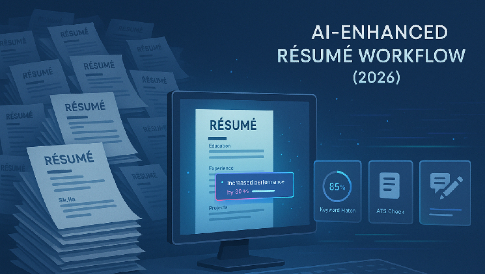5 Recruiting Time Management Techniques Every HR Must Use
Whether you’re a full-time human resources representative or an office administrator who tackles HR tasks part-time, a recruiter job position requires you to obtain a specific skill set. Apart from being able to multitask and having outstanding communication skills, it also includes strategic thinking, proactivity, business management, and organizational skills. However, as a recruiter requires juggling lots of candidate information, scheduling meetings, and balancing several queries simultaneously, strong time management skills are crucial to succeed in recruitment. As such, it is vital to utilize time management techniques to make the most out of your working day. Below, you will find several time management strategies best suited for legal recruiters that will help you increase your productivity and time effectiveness. Here’s what you can do:
Time Management Techniques – Work Smarter, Not Longer
One of the most common mistakes people make is measuring their productivity in terms of time spent, not the actual results. As such, you may waste most of your workday on tasks that lead to nowhere near your initial goal but make you feel drained by the end of the day. It’s similar to how you manage your money; just like you may browse through Coupon Ninja to find the best deals and reduce your spending, you should be organizing your work to reduce the amount of time spent.
For this reason, planning the results you want to achieve and the tasks you need to complete to get there is essential. For example, when scheduling a call with a client or candidate, you also need to set out the agenda and outline a few questions to get more information or details needed at this point of the employee search. Focusing on bringing actual results from your work will help you finish tasks faster, waste less time, stress less, and feel more fulfilled because of the sense of accomplishment.
Always Plan Ahead
To increase your productivity and carry out more tasks in less time, you need to plan your time. One of the most effective ways is to make to-do lists for the day ahead. First, listing unfinished tasks and other things you must tackle helps free up your mind and release the anxiety they might cause. Moreover, a comprehensive to-do list will make complex tasks look more attainable, allowing you to manage your workload more effectively.
Secondly, adding clear deadlines to your schedule will help you prioritize tasks, track progress, and treat your working hours more seriously. However, keep your to-do lists concise and realistic to avoid getting overwhelmed by everything waiting in line for your attention. Another helpful thing is setting rewards for achieving particular goals and milestones – even small pleasures like a dinner at your favorite restaurant on Friday night can help you concentrate on the task.
Prioritize
Another great thing about to-do lists is that they help you prioritize your tasks and, even better – deal with some of them already at the planning stage. To make it work, you will need to use the Eisenhower Box technique, developed by Dwight Eisenhower, known for his incredible ability to sustain productivity for weeks, if not months. To use this method, you need to write down all your unfinished tasks, divide them into four categories, and act accordingly:
- Urgent and important – do it immediately.
- Important but not urgent – do it later.
- Urgent but not crucial – delegate.
- Neither urgent nor essential – eliminate.
As you can see, many tasks can be delegated or excluded from your list, saving you time to focus more on what’s urgent and important. Similarly, you can utilize this technique for rearranging interviews with candidates and even ranking them to get to the most wanted ones in a timely manner. When prioritizing candidates, you should consider their current availability, if they are new to the market, and how excited they are to work for your clients. UK HR systems for recruiters like Zelt can streamline these tasks by centralizing candidate profiles, communication, and scheduling, so HR teams can act faster and more strategically.
In addition, you can utilize the Inbox Zero technique to organize and prioritize emails in your email box – one of the communication tools recruiters use daily. Emailing in scale can become overwhelming, so allocate time each day to rearrange new emails and stick to them. The latter means turning off notifications in the browser to avoid the domino effect when you reply to one email and cannot leave your inbox for hours. Don’t confuse being responsive with being proactive; stick to your schedule.
Recruiting Time Management Techniques – Schedule Regular Breaks
Another essential thing to remember when assembling your daily schedule is allocating time for breaks – most preferably, between changing tasks. As such, you can either schedule longer breaks between different types of work – for example, dealing with emails first thing in the morning and then, after a 20-minute break, switching to calling candidates – or you can stick to a popular Pomodoro technique and take a short 5-minute break after every 30 minutes of concentrating on the task at hand.
Working in intervals will make your workday more dynamic and help you get through it without feeling exhausted. Alternatively, you can use a time-tracking app for employees to determine the most time-consuming tasks and find ways to optimize them.
Deal with Complex Tasks in the Morning
Although it might seem impossible on particular days to get out of bed, not to mention spark up productivity, according to the Redbooth report, our most productive day time is 11 am when we complete the most tasks (9.7% of all tasks). Moreover, we are the most productive at the beginning of the week, surprisingly on Monday (20.4%), making it a perfect time to start planning for the days ahead.
However, before tackling the little tasks on your to-do list, you should consider starting with the most complex one. Even if it requires several hours of your workday to complete, you still will have enough time, and what’s more important, energy, to deal with several minor things later. On the contrary, if you finish many tasks at the beginning of the day, you’ll probably feel less motivated to do something more complicated later.
Recruiting Time Management – Final Note
You cannot underestimate the importance of good time management when it comes to building any career, but it is especially important if you’re working as a recruiter. Following the tips from this article will help you stay more organized, productive, and even satisfied with your working process. Effectively managing your time will also help you feel less stressed about your work and have more energy for your leisure time. And suppose you are already familiar with all the time management techniques mentioned above. In that case, you must incorporate them into your working routine, as they are only effective if you stick to them daily. Now, get back to work, and good luck!




Leave a Reply